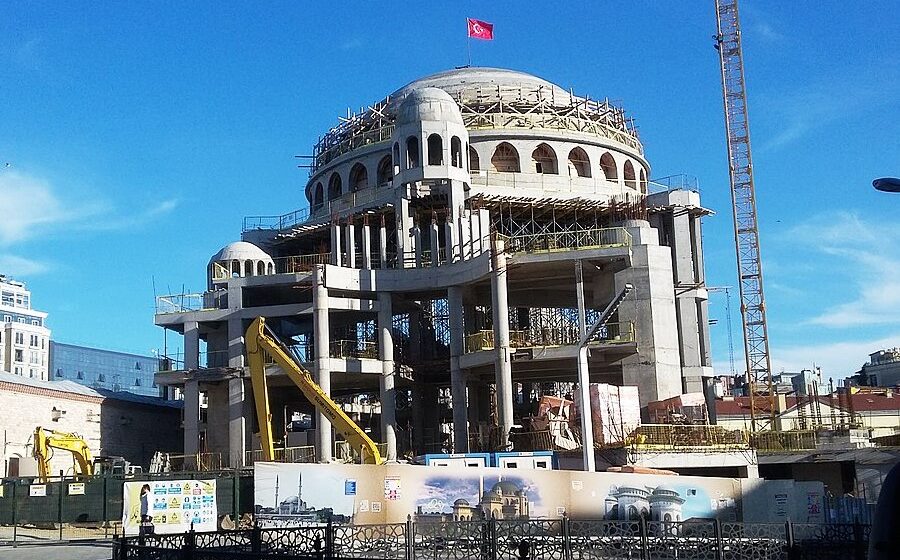Turkish President Recep Tayyip Erdogan has inaugurated a mosque in Taksim Square, Istanbul – the plans for which sparked a wave of protests in 2013.
Thousands attended the ceremony, with some praying in the square itself because the mosque was full.
The mosque features prominently next to a public space traditionally seen as a symbol of the secular Turkish republic.
It also dwarfs a monument to the republic, and its founder Mustafa Kemal Ataturk.
“Taksim Mosque now occupies a prominent place among the symbols of Istanbul,” Mr Erdogan said after saying Friday prayers at the site. “God willing, it will stay until the end of time.”
He also told crowds that the mosque’s construction was a victory over protesters who had objected to Taksim Square having any sort of religious tone, adding that “nothing can stop this initiative now”.
Mr Erdogan first talked about wanting a mosque in Taksim Square when he was the mayor of Istanbul in the 1990s.
“There wasn’t even a prayer room and the faithful had to make do with praying on newspapers on the ground,” Mr Erdogan told the crowds on Friday.
Worshippers at the site praised the new mosque, which combines Ottoman features with contemporary design, and is able to accommodate about 4,000 people.
Abuzer Koç told AFP news agency that “there are too many people and not enough mosques”.
“God bless those who made this happen,” he added.
But while Turkey is a Muslim-majority country, critics have accused Mr Erdogan of actively trying to displace Turkey’s secular basis.
Plans in 2013 to build the mosque in Istanbul’s Gezi Park, in the Taksim Square area, sparked a wave of protests – both in the city, and solidarity protests across the world.
But what began as a demonstration against the redevelopment of the area quickly turned into a wider expression of anger against government policies, and what they saw as Mr Erdogan’s increasing authoritarianism.



